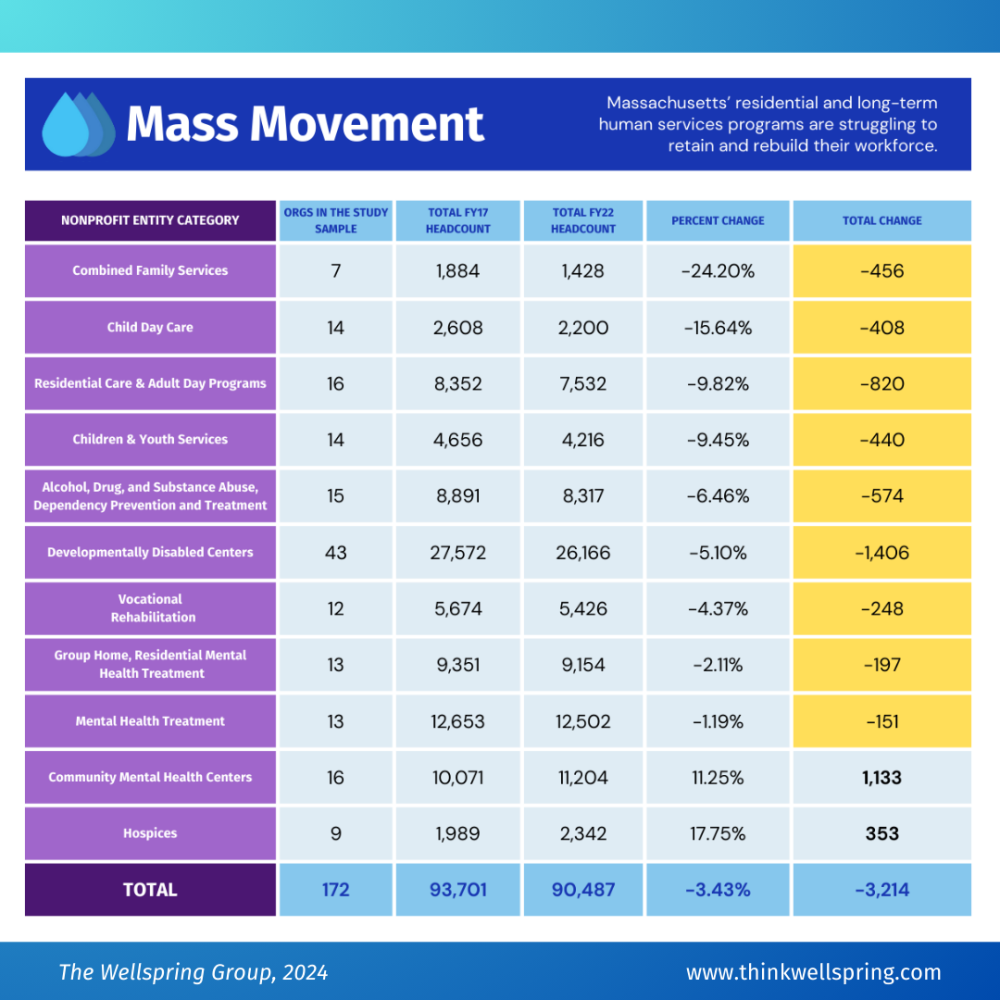Mass Movement: Solutions for a Shifting Human Services Employment Market
Massachusetts lost thousands of employees who provide critical care for children, adults with developmental disabilities, and people living with mental health and addiction treatment needs during the pandemic years.
But unlike many other sectors of our economy, the Massachusetts nonprofits employing these professionals have not been able to rebuild their workforce to pre-COVID levels.
Our team recently completed a study of 172 Massachusetts human services organizations with more than 50 employees (which yielded a talent pool of over 90,000 Massachusetts human services employees) from FY2017 to FY2022.
Our sample concentrated on non-hospital nonprofits from sectors that provided the most intensive personal care to their clients and did not include independent living communities.
We found that a vast majority of the nonprofits struggling to retain workers typically employed people to provide around-the-clock care for individuals in group homes or residential settings, while also providing outpatient, in-home, or community-based services. For these types of organizations, sustained employee losses have been most prominent in their residential programs.
Organizations that typically deliver outpatient care, like Community Mental Health Centers, or who provide a more specialized form of care at a patient's home that would typically be thought of as an inpatient service, such as hospice organizations providing home care, have consolidated the employment market and gained employees.
In our sample, multiservice organizations with a mix of at-home, community-based programs, day programming, and around-the-clock residential services programs lost nearly 5,000 employees from FY17 to FY22.
Today, many of the human services HR leaders we have spoken with in these organizations say they fear the employment market for these roles has permanently changed. (See the "Total Change in Headcount" numbers highlighted in yellow in the table below.)
While the demand for these employees still exists, many of the tools that nonprofit HR Teams previously used to hire these professionals are no longer bringing candidates to the interview table and, in some cases, employee turnover in these roles has increased from pre-pandemic rates.

Clarity & Insights
Despite the challenges faced in the sector, many organizations (including several of Wellspring's clients) have found thoughtful ways to leverage the following factors to care for their people who, in turn, deliver high-quality care to those who need it most:
- Innovative compensation structures
- Flexible work hours
- A commitment to employee advancement
- Compassionate, situational leadership
Over the coming weeks, our team at The Wellspring Group will continue to shed light on this critical issue for Massachusetts' health and human services sector, as well as some possible solutions to the challenges this employment market presents.
We invite you to follow along as we explore "Mass Movement: Solutions for a Shifting Human Services Employment Market" and learn how residential human services programs have adapted to the changing landscape of nonprofit health and human services employment.



